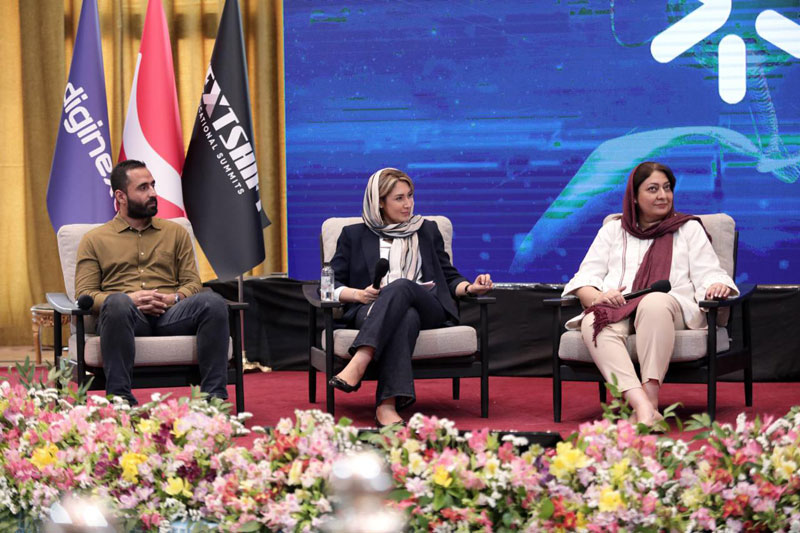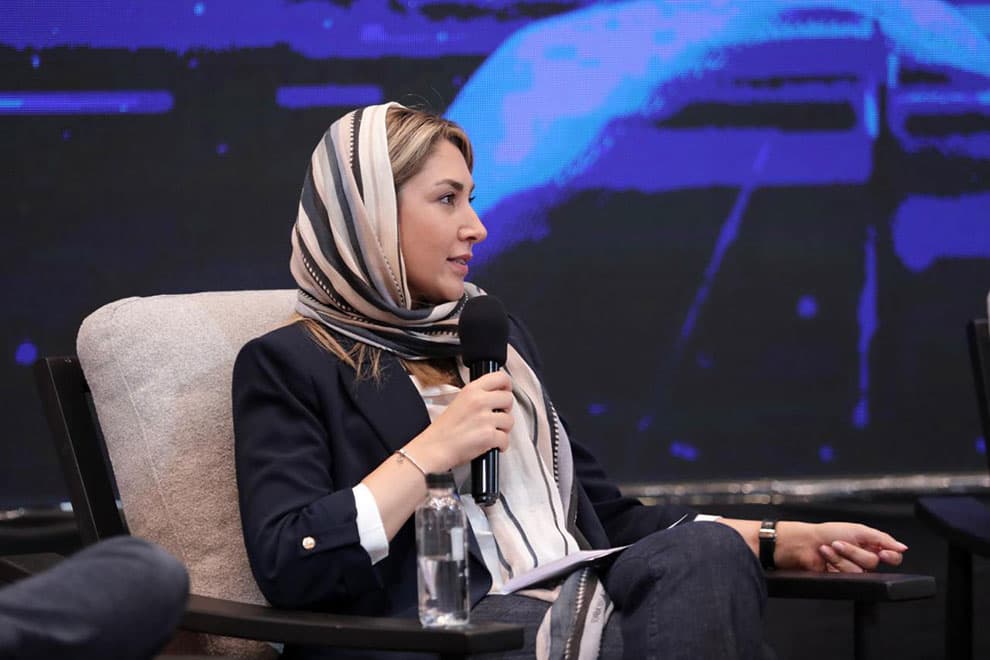NextShift event (an educational event) was held by Diginext and Digikala in order to examine the relationship between technology and human resources, and in it topics such as the impact of key trends such as automation, artificial intelligence on the tasks, needs and skills of employees, the role of data and their analysis in strategic decisions. Human resources, the position and role of human resources managers in the changing world, and strategies and solutions for deploying technology in order to improve productivity and improve the effectiveness of human resources were discussed and explored by the speakers and attendees in the panels.
According to Iran digital economy annotation, in this ceremony, a panel centered on the organization in transition was formed, the content of which was an expression of the experiences of the organizations regarding the changes. In this panel, 4 CEOs from 2 completely different industries, including start-up and manufacturing of consumer products (FMCG), shared their experiences. Elnaz Sakheian, CEO of Nestlé Iran, who was appointed as the first Iranian woman to the executive management of this company in the early days of 1403, referring to the importance and priority of human resources as the company’s most valuable asset, said: “What I learned when I joined Nestlé with other My experience was different and what caught my attention was Nestlé’s human-centered culture. In the organizational culture of Nestlé, the importance of human resources is a priority in all criteria and ways of doing things.
The CEO of Nestlé Iran went on to emphasize that we cannot yet claim that we have become digital, and added: “Globally, we are moving rapidly in the direction of increasing the presence of technology in the service of human resources.” In Iran, we are also trying to make the most of the available data in improving future strategic planning. That is, during long-term planning, using existing data, we identify the skills and key roles needed by the organization for the future, and in order to provide them, using data analysis, we use a model called 4B (Buy, Borrow, Bot, Build). In this model, the first category is the skills that must be obtained from outside the organization (BUY); The second category is skills that can be shared within the company and between different countries (BORROW); The third category is where technology come to the aid of human resources to meet the needs of the organization (BOT); The fourth category is those that are planned and acted upon within the organization to create or strengthen capabilities (BUILD).
In this panel, creating a demanding culture and addressing it by senior managers was one of the concerns of CEOs. In this regard, Elnaz Sakheian pointed out that: “We at Nestlé always try to strengthen the culture of face-to-face and direct conversations and encourage employees to make demands to improve the company’s culture and performance, and we believe that in this way, we will continue to There is a lot to improve and develop.
The event was an opportunity for all participants to get acquainted with new perspectives and practical strategies in facing the challenges of manpower in the digital age. Nestlé Iran, as one of the companies present in this event, is always trying to take effective steps towards the development and progress of its employees by using reality-based data.





No Comment! Be the first one.